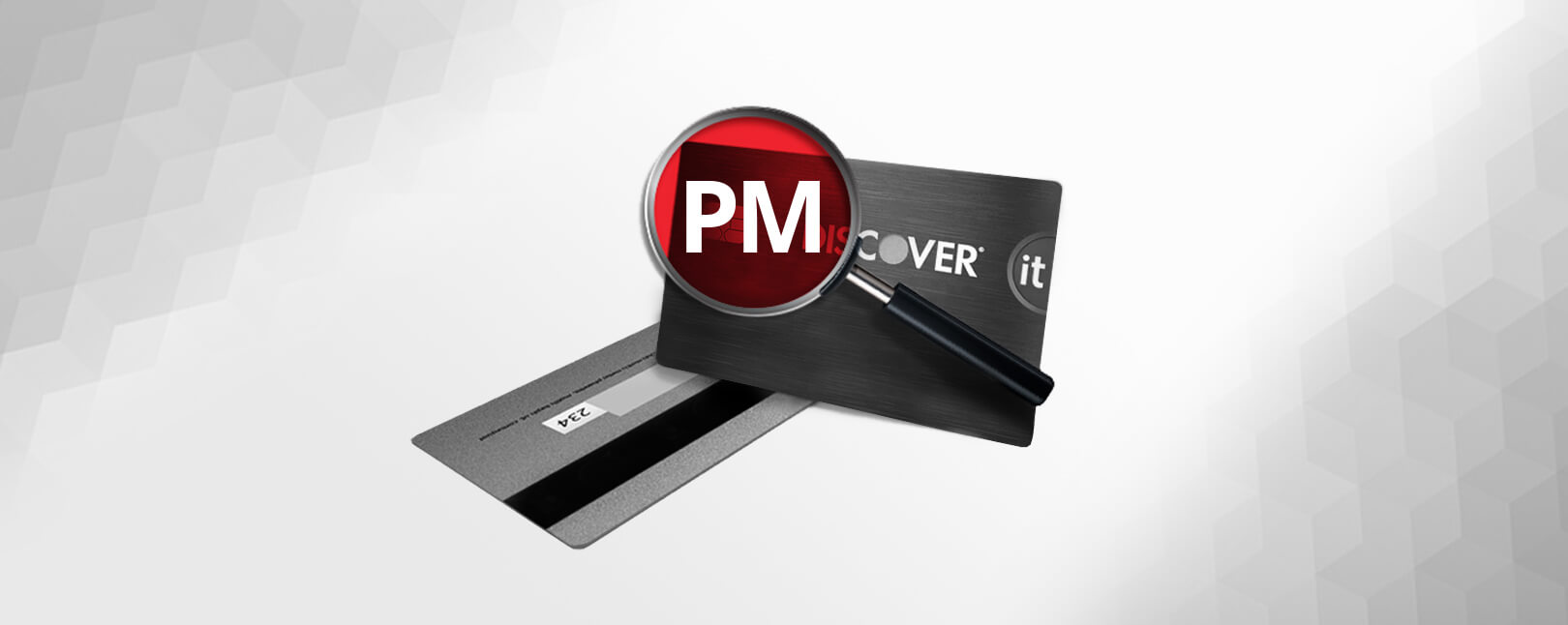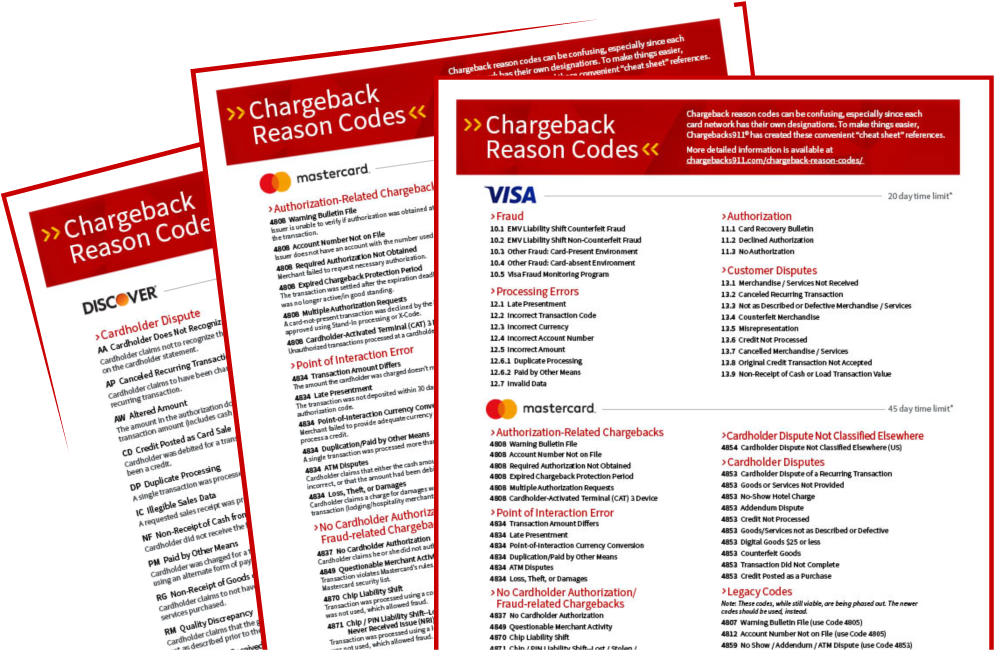
You Receive a Discover Reason Code PM Chargeback. What Can You Do?
Discover is much smaller in scale than competing card networks like Visa and Mastercard. But, the Discover card chargeback process is just as well developed as that of rival networks.
Discover organizes its 26 alphabetically coded chargeback reason codes into four main categories: fraud disputes, service disputes, and processing error disputes, as well as reason codes for dispute compliance. Discover reason code PM is grouped under the service disputes category.
In this article, we give an overview of Code PM disputes, highlight when they might arise, and address how merchants can contest and prevent chargebacks associated with this reason code.
Recommended reading
- PayPal Account Limitations? Here are 5 Ways to Respond.
- Best Credit Card Processing Companies of 2025 REVEALED
- What Happens When You Dispute a Transaction?
- Spring 2025 Updates to Visa’s Merchant Fee Schedule
- What is Smishing? How to Identify & Prevent SMS Text Scams
- How EMV Chip Cards Work: Pros, Cons, Data Points & More
What is Discover Reason Code PM?
Discover reason code PM is “Paid by Other Means.” It’s used when a customer claims you charged their Discover card even though the cardholder paid for the product or service using another payment method, such as cash, a prepaid card, or another credit or debit card.
The cardholder should first attempt to resolve the matter with you before initiating a dispute. If you and the cardholder can’t resolve the dispute on your own, the cardholder may file a reason code PM chargeback with their issuing bank within 120 days of the original transaction. Discover will then investigate the transaction and forward the reason code to you via your acquirer.
When filing a chargeback, the cardholder can submit evidence that shows their Discover card was charged even after they already paid for the purchase through alternate means. If the cardholder cannot provide documentation, then Discover may initiate a ticket retrieval request.
What Caused This Dispute?
Discover reason code PM disputes, provided they were filed in good faith, are typically caused by merchant error. For example, the merchant double charges the customer after forgetting they already paid using another card.
Cardholders may file one of these disputes if:
- Card-on-File Charged in Error
A cardholder had their card saved on file. They made a purchase using an alternative payment method (such as cash, a gift card, etc.), but the saved card was still charged anyway. - Refund Not Processed
An accidental duplicate charge occurred. But, a refund or credit was not given to the customer within a reasonable timeframe. - Charge Despite Payment by Someone Else
Another individual — for instance, a guest or travel companion — paid for the purchase. However, the Discover cardholder was still mistakenly billed for the transaction. - Charge Meant to Be Paid by Third Party
The Discover cardholder was charged, but they anticipated that the amount in question would be covered by another third party. Insurance reimbursement or costs for a rental vehicle during car repairs are examples of this.

We should also point out that cardholders may only dispute the amount they were charged in error. Here’s another example: suppose a customer is presented with a $50 restaurant bill. They instruct the server to apply a $40 gift card to their bill, and then charge the remaining balance of $10 to their Discover card. The restaurant applies the gift card balance, but then charges the customer’s Discover card for $50, as if the gift card were never applied.
In this instance, the cardholder may not dispute the entire $50 charge; the amount the customer may dispute is limited to the difference between what the cardholder was charged and what they should have paid, which is $40.
How to Respond to Discover Reason Code PM Chargebacks
Not all reason code PM disputes are valid. Cardholders may file bogus chargebacks out of a desire to get a product or service for free. This is called friendly fraud. And, to make matters worse, 72% of merchants surveyed in the 2024 Chargeback Field Report say they have experienced an increase in friendly fraud chargebacks over the last three years.
The good news is that merchants can fight invalid chargebacks and recover lost revenue through the chargeback representment process. Discover rules state that merchants have 20 days to respond to a reason code PM chargeback notification.
You should gather and submit convincing evidence that is relevant to the reason code received. For reason code PM chargebacks, you should either demonstrate that the cardholder was correctly charged, or that you already rectified the billing error and refund the cardholder. You should also submit a rebuttal letter that summarizes the evidence provided, explains why the chargeback is invalid, and asks for the dispute to be reversed in the seller’s favor.
Discover will review your representment package, and weigh it against evidence provided by the cardholder. Discover will then either uphold or reverse the chargeback.
Acceptable Evidence for Discover Reason Code PM Responses
Basically, you need to supply evidence demonstrating that the payment method the cardholder claims was used for the disputed charge is not connected to the transaction in question. Or, you can present documentation proving the cardholder authorized the use of the card for the disputed charge. Supporting examples include:
- A signed receipt or sales draft for the charge.
- A copy of your terms and conditions, agreed to by the cardholder.
- Shipping or tracking information, showing the disputed charge is from a separate transaction.
Alternately, you can provide papers showing that a credit has already been issued to offset the duplicate charge and resolve the matter.
How to Prevent Discover Reason Code PM Chargebacks
You should implement proactive chargeback prevention measures to minimize the risks of penalties, fines, or higher processing fees. For example, you can:
Although friendly fraud is common, identifying when a chargeback is legitimate — and when it isn’t — is difficult to do.
30% of merchants surveyed in the 2024 Chargeback Field Report say that they have problems identifying friendly fraud. It’s the third most commonly reported challenge behind keeping chargeback rates in check and successfully contesting chargebacks in representment.
Luckily, the industry experts can help. At Chargebacks911®, our dual-layered dispute prevention and representment solution can help you keep chargebacks at bay and successfully defeat the ones that do fall through the cracks. Act now for a no-obligation consultation.









